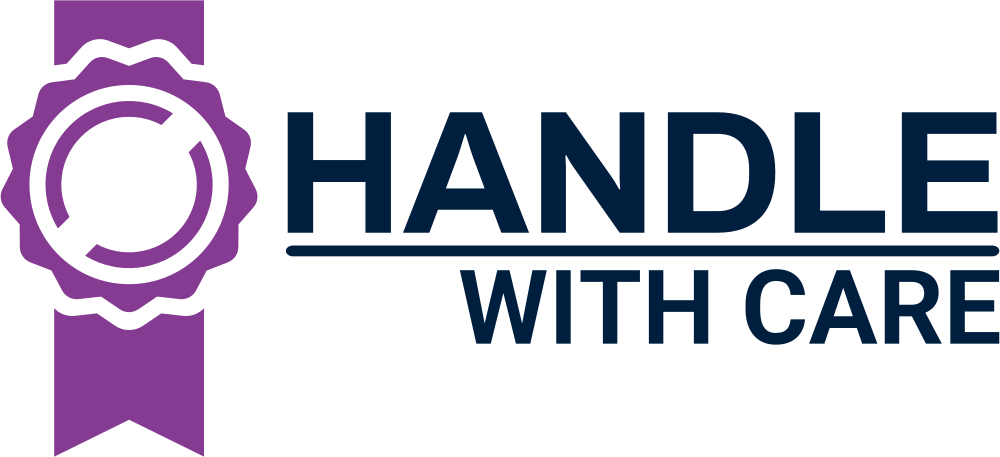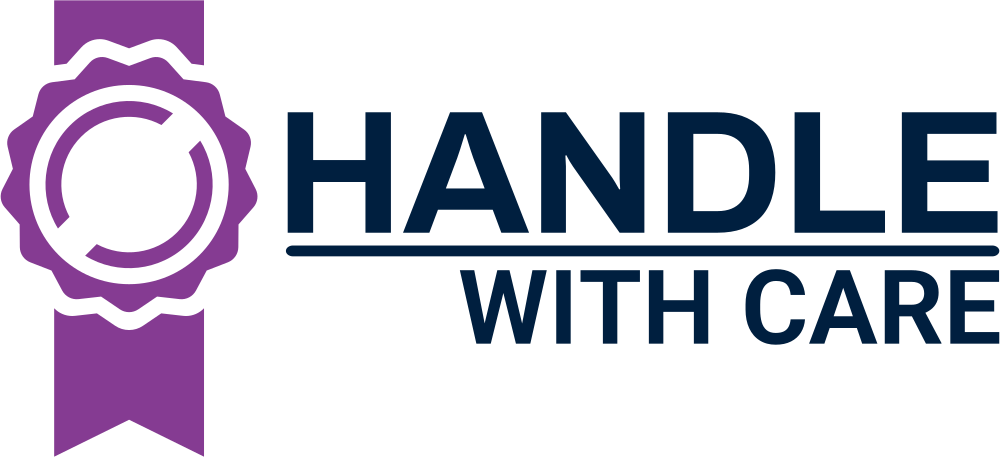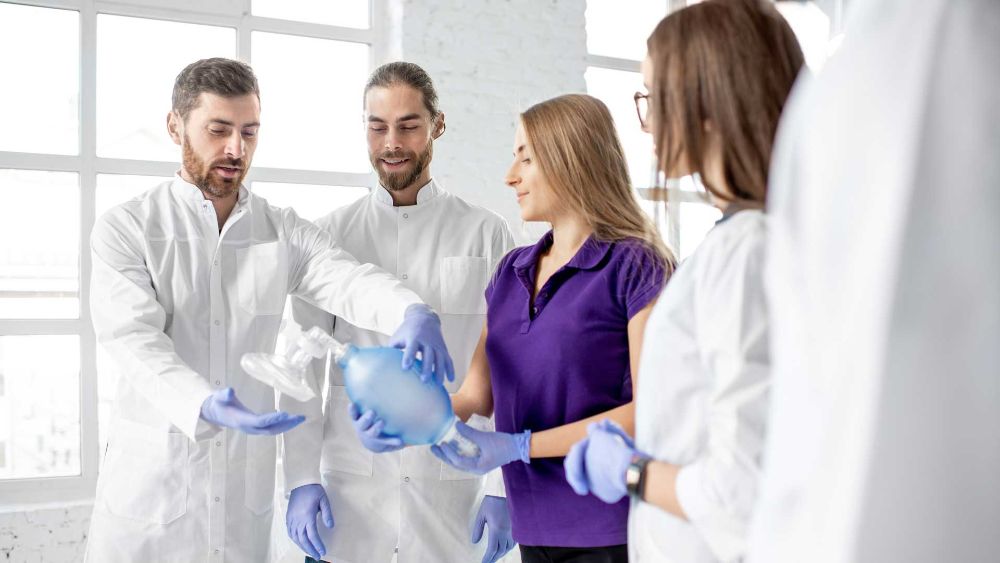On-site
Basic Life Support (BLS)
What is BLS?
BLS course is designed to provide healthcare professionals the ability to recognize several life-threatening emergencies, provide Cardio Pulmonary Resuscitation (CPR), use an Automated External Defibrillator (AED), and relieve choking in a safe, timely and efficient manner for victims of all ages - adults, children, infants.
Who should attend Basic Life Support?
BLS Healthcare Provider Course is for medical, para-medial and allied healthcare professionals. It is intended for participants who provide healthcare to patients in a wide variety of settings, including in-hospital and out of hospital settings.

We offer BLS training delivered at your premises and tailored to your business needs. Provided by fully qualified instructors with medical background.
What's Involved in Basic Life Support BLS Training?
Training Aim and Objectives
BLS Healthcare Provider course is designed to give participants the knowledge and skills to provide CPR to people in Cardiac Arrest.
It also covers the use of an Automated External Defibrillator (AED) safely and the use of Bag-valve mask device.
This course is for healthcare professionals who need to know how to perform CPR, as well as other lifesaving skills, in a wide variety of in-hospital and out-of-hospital settings.
Course Content
- Key Changes in Basic Life Support
- Critical Concepts of High-quality CPR
- American Heart Association Chain of Survival
- 1-Rescuer CPR and AED for Adult Child and Infant
- 2-Rescuer CPR and AED for Adult Child and Infant
- Differences between Adult, Child and Infant Rescue Techniques
- Bag-mask Techniques for Adult, Child and Infant
- Rescue Breathing for Adult, Child and Infant
- Relief of Choking for Adult, Child and Infant
Method of Delivery, Duration & Assessment
Training delivery includes both lecture methods (including videos) and practical work with "hands-on" experience.
Course duration is Half Day.
Maximum number of participants: 6
Students will be assessed on a practical scenario and 25 multiple choice questions exam.
Fully Compliant Certificate valid for 3 years
Upon successful completion of this course, students will be issued with an Irish Heart Foundation / American Heart Association credit card sized certificate. This cert will be valid for 2 years. It should also be noted that as this course is certified by both the Irish Heart Foundation & American Heart Association it is recognised internationally.
Did you know?
Recent statistics have shown that the earlier CPR is performed, the higher the chances of survival after cardiac arrest. Nearly 45 percent of out-of-hospital cardiac arrest victims survived when bystander CPR was administered.
When bystander CPR was administered to cardiac arrest victims, 22.9% of the victims survived until they were admitted to the hospital and 11.9% were discharged alive. In comparison, the statistics for cardiac arrest victims who did not receive bystander CPR were 14.6% and 4.7%, respectively.
In relation to the cause of the cardiac arrest, the report found that in the majority or 85 per cent there was a medical reason that caused the heart to stop, while a small proportion of cases were due to non-medical causes such as trauma, choking, drug overdose or drowning.
FAQs
Got a question? We’re here to help.
-
We are not is Healthcare Sector, can we still do this course?
No. This course is for Healthcare Providers only. Please check HeartSaver CPR & AED for more details.
-
Is any part of this training available online?
No. Our training is classroom delivered with hands-on on experience.
-
Do we need any additional equipment?
No. Our instructors are fully equipped.
-
What if I we need to cancel?
If you need to cancel your training already booked, we will be happy to accomodate you with alternative dates.
-
How long is BLS certificate valid for?
BLS certificate is valid for 2 years.
Basic Life Support, or BLS, generally refers to the type of care that first-responders, healthcare providers and public safety professionals provide to anyone who is experiencing cardiac arrest, respiratory distress or an obstructed airway. It requires knowledge and skills in cardiopulmonary resuscitation (CPR), using automated external defibrillators (AED) and relieving airway obstructions in patients of every age.

We cover Dublin, Kildare, Meath, Louth and Wicklow.
Training Services
Contact Information
Call: 086 2024504
info@handlewithcare.ie
2023 © Handle with Care Limited. Privacy Policy





